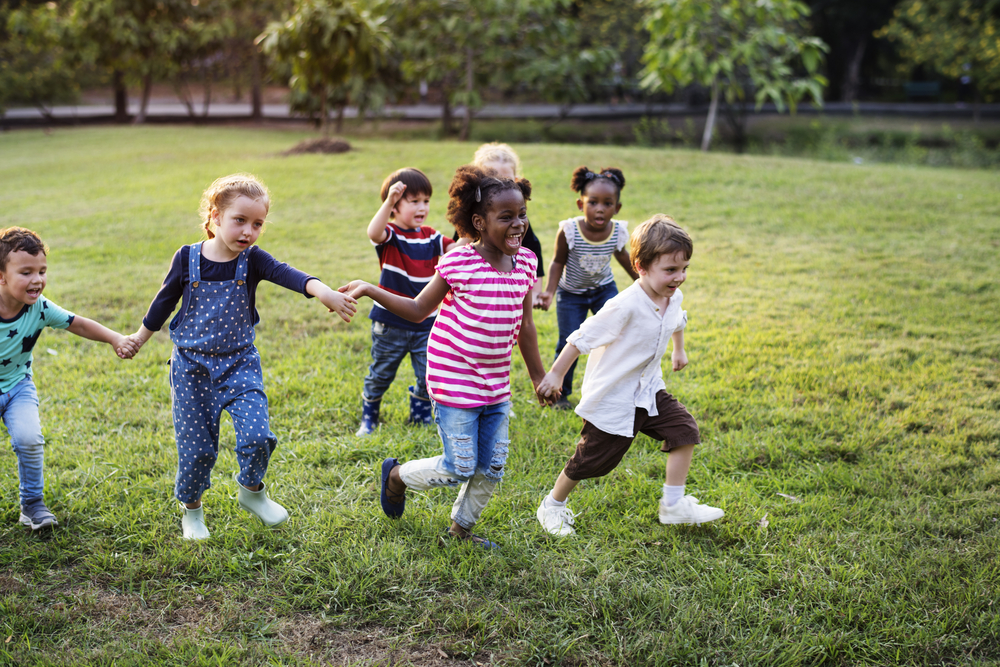 Scott Bedley has a simple suggestion for kids, and it’s one to which they probably won’t object: Play more.
Scott Bedley has a simple suggestion for kids, and it’s one to which they probably won’t object: Play more.
Bedley, an Irvine elementary school teacher and a 2014 Orange County Teacher of the Year, is among a half-dozen educators from California who in 2015 established Global School Play Day out of a growing concern that adults and technology were increasingly encroaching on unstructured playtime and its critical developmental benefits.
Three years later, the fourth annual Global School Play Day is set for Wednesday, Feb. 7, and organizers are anticipating that more than 350,000 boys and girls will register to participate through their teachers, principals and parents.

“A lot of the schools that do it will build it into their calendars throughout the year,” Bedley adds.
Bedley says his group was first inspired by a 2014 TEDx talk featuring Dr. Peter Gray, who argues that a gradual decline of unstructured play over the last 50 to 60 years has contributed to an increase in youth depression, stress-related issues and higher suicide rates.
Childhood, says Gray, “has turned from a time of freedom to a time of resume-building.”
Child-driven play
So how do you define “unstructured playtime”? Bedley characterizes it as child-driven play, with adults as observers rather than directors. It also means holstering electronic devices — especially ones with screens — in favor of more collaborative toys like board games, dolls, Legos, blocks, playing cards, cars and even empty cardboard boxes.
The key is giving kids the time and space to be innovative and imaginative with one another.
In February 2015, with just a few weeks of promotion through social media, more than 65,000 children from public, private and home schools participated in the first Global School Play Day. In 2017, approximately 285,000 kids from 51 countries were registered by their administrators and teachers.
The goal this year is half a million.
“I hear students saying, ‘I finally have time, and I’ve met kids that I’ve gone to school with and now we’re good friends,'” Bedley says. “They really get a chance to build community, and teachers get a chance to observe how students interact with their peers and see any social-emotional issues they may need to address.”
Unstructured time
When Harbor View Elementary in the Newport-Mesa Unified School District first participated in Global School Play Day in 2016, the students and staff were quick to embrace the concept, Principal Todd Schmidt says. The next year, Harbor View took it a step further, inviting parents to play with their children during recess and at lunchtime.
“We wanted them to be able to enjoy the experience and remember the fun of childhood,” the principal says.
Count Schmidt among those who believe the value of recess is often underestimated. For children, unstructured playtime isn’t just beneficial, he says; it’s essential.
“I need these kids to play,” Schmidt says. “I need them to get the wiggles out. It’s scientifically proven that their brains develop when they’re given the opportunity to have a body break.”
Though Global School Play Day will officially be observed on Feb. 7, the campaign has the potential to spark a broader conversation about the scientific merits of play. Meanwhile, at Harbor View, Schmidt says it’s about building a positive culture and letting kids be kids — and it just so happens to align nicely with other campuswide efforts to get students excited about coming to school each day.
“School doesn’t have to be a place where you dread coming,” he says. “Basically, our vision is that we want kids to beat down the doors to get in rather than out.”
For more information, visit www.globalschoolplayday.com, follow the hashtag #GSPD2018, or email globalschoolplayday@gmail.com.
